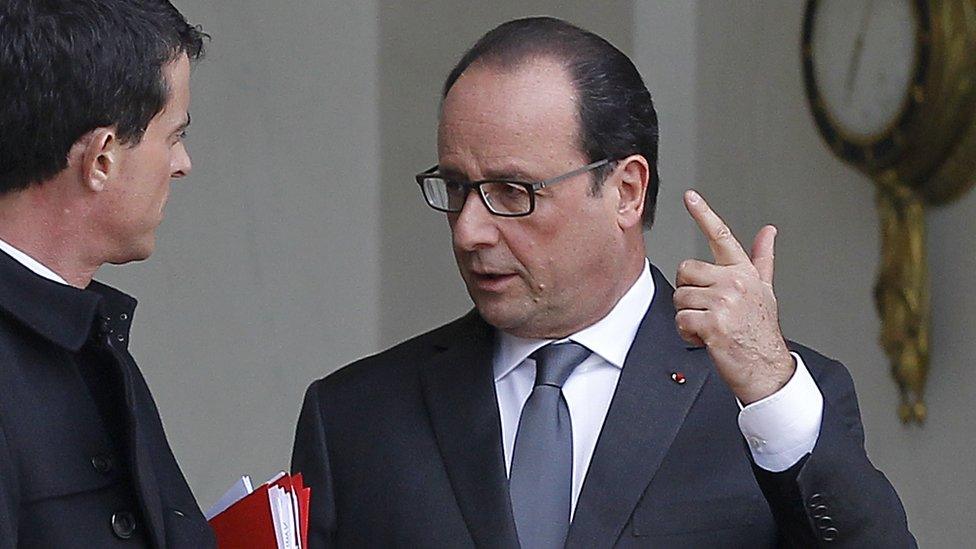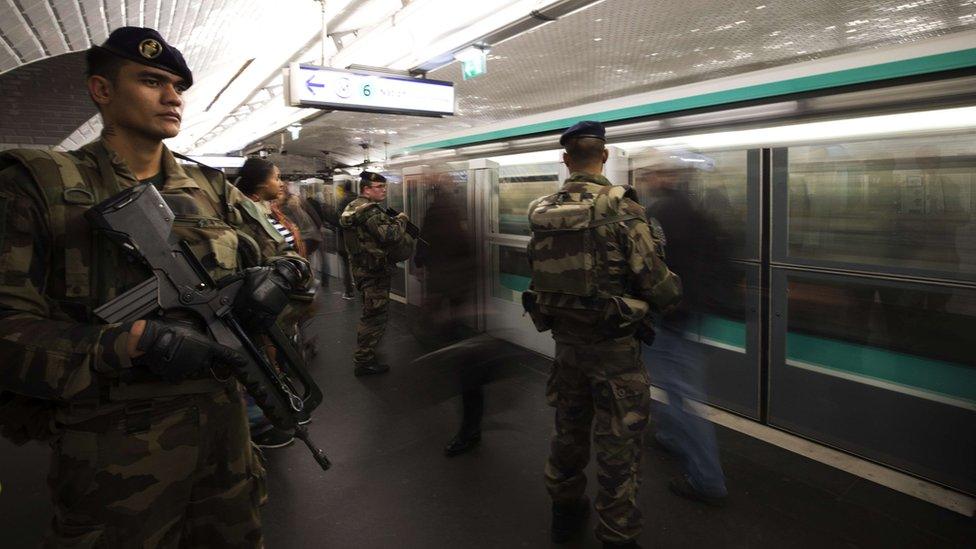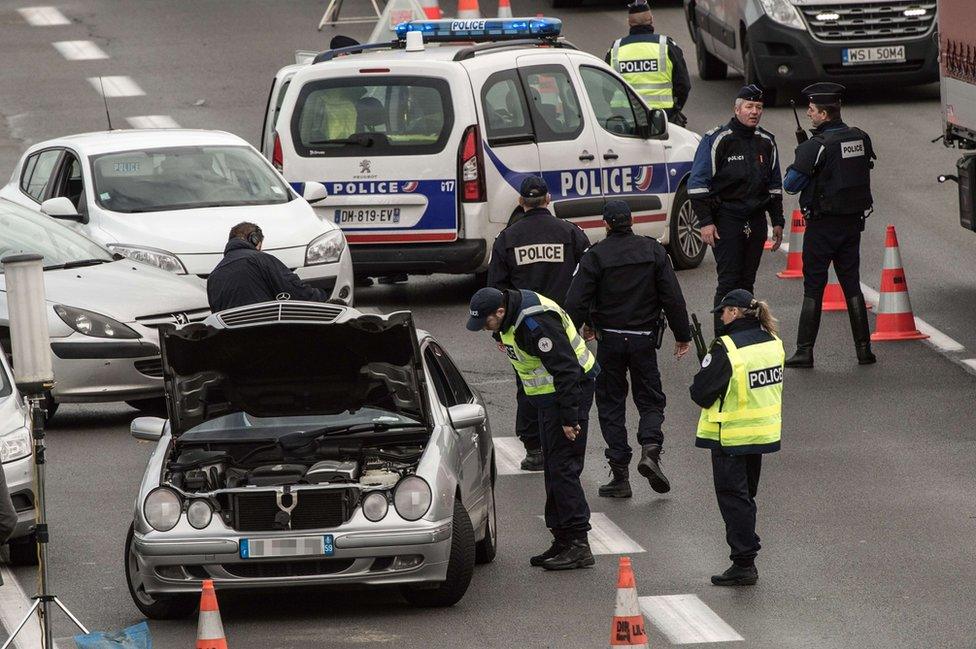Paris attacks: Hollande upstages opposition
- Published

President Hollande's tough language has gone down well with a French nation shocked by savage attacks
The Paris attacks have triggered a major shift rightwards for President Francois Hollande - he is stealing thunder from the opposition by adopting many of their own anti-terror proposals.
Several commentators in France have noted the gulf that separates reaction today from reaction to the Charlie Hebdo and HyperCacher killings in January.
Then the country took comfort in its familiar instinct for left-inspired solidarity. A million people turned out in the Place de la Republique, and the language was of healing and cross-community fellowship.
Quite rightly, Mr Hollande has judged that today these mantras will not do.
That is why Monday's speech before the joint houses of parliament took his political enemies by surprise. By the end even the far-right National Front (FN) conceded that the president's ideas might have some merit.
French President Francois Hollande described Friday's attacks in Paris as "an act of war"
For the right-wing daily Le Figaro, the president's reaction to the attacks "marks a turning-point towards a clearer vision for eradicating the Islamists. It was about time."
Hierarchy of evil
The victory of realpolitik over what the French call "l'angelisme", or naivety, is visible in two domains.
On the international front, Mr Hollande has said, in so many words, that getting rid of President Bashar al-Assad in Syria is no longer what counts.
A coalition between France, Russia and the US will start to take shape, whose aim will be simple: to grind Islamic State (IS) into the dust.
This is a huge step when you consider that, just a few days ago, the French government was arguing that Mr Assad was as much of a problem as the jihadists. Now there is a clear hierarchy of evil.
On the domestic front, Mr Hollande occupied space previously staked out by Nicolas Sarkozy's party, The Republicans, and left them struggling for a convincing response.
He announced the creation of 5,000 new police posts; 1,000 new customs and border guards; 2,500 new justice officials. In addition, 9,200 army jobs that were to have been scrapped will be saved.

Soldiers in a metro station: Security has been beefed up all over Paris
Some of the president's ideas had the opposition gagging with disbelief.
A proposal to strip French citizenship from convicted jihadists who have a second nationality - for example Algerian - was consistently rejected in the past by the Socialists.
Likewise, the call for tougher sentencing for crimes that have a terrorist motivation; or the proposed change in the rules of engagement for police officers, so they can shoot more quickly.
Monitoring suspects
The right would still have liked Mr Hollande to go further.

Police check cars at France's border with Belgium - the jihadists are thought to have planned the attack in Brussels
One idea pushed by Mr Sarkozy's party is for all 11,000 people subject to a so-called "S" notice to be issued with an electronic tag.
The S notice is a form of intelligence-gathering. It means that when a person on the list is identified by a police officer, for example at a routine check, his whereabouts and associates are passed on to a central database.
Consistently it is turning out that Islamist attackers have already been identified by the intelligence services, and are thus on the S list. This is leading to calls for all S list suspects to be tagged.
Mr Hollande said that the idea will be studied, but it is unlikely to be regarded as practical.
There is a political dimension to the president's reaction. Elections are coming, and he has trimmed his sails to the prevailing wind.
Many will say he is still unconvincing, or that the measures unveiled can only be of marginal effect against such determined adversaries as IS.
But he has certainly judged the national mood.